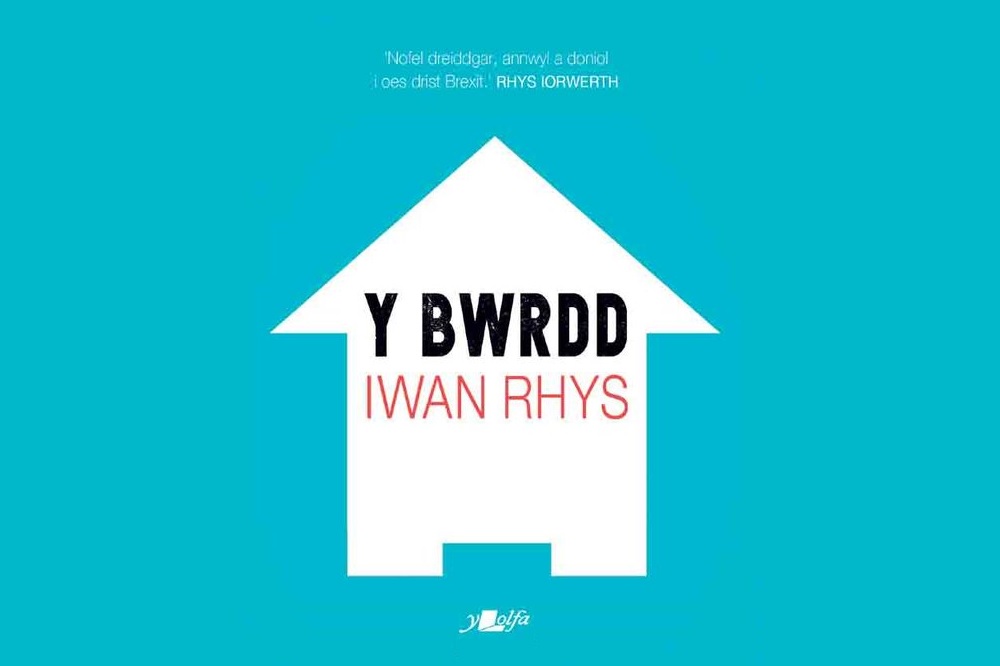Review: Y Bwrdd looks at the effect of Brexit on one man and his family

Ifan Morgan Jones
Until recently Welsh literature had not had an awful lot to say about contemporary politics. Even overtly political novels such as John Osmond’s Ten Million Stars are Burning and Porth y Byddar has tended to look back at pre-devolution battles, both won and lost.
Perhaps Wales’ authors had felt relatively content that devolution was job done, Wales’ place as a cultural construct was secure and they could talk about other things for a little while?
In the last two years or so, however, there seems to have been a shift, with a growing number of novels responding both to the rise of populism, British nationalism, the Welsh independence movement, and a growing sense of dissatisfaction with devolution.
And given that there’s usually something of a delayed reaction in long-form literature (it takes a year or ten to write a book) perhaps we can expect something of a glut of such novels, in Welsh and English, over the next decade or so.
Y Bwrdd by Iwan Rhys does not attempt to hide the fact that it has been inspired by current events – the cover is quite clearly based on the Brexit Party logo (a party that didn’t exist this time last year)!
The book begins however as a humorous swipe at the life of a middle-class Welsh speaker, Carwyn, at the Fictional Welsh Language Commissioning Board in Cardiff.
After years protesting with the Welsh language society, Cymdeithas yr Iaith, he finds that the hard work of trying to make a difference is much more boring and bureaucratic than he anticipated.
The author’s description of someone who spends far too long both on the toilet and on Twitter at work may hit slightly too close to home for many readers. The unremitting dullness of his workday is however juxtaposed with his seemingly insatiable thirst for a pint and his love for cooking.
(It hasn’t escaped this reviewers attention than the author used to work at the now-abolished Welsh Language Board before embarking on life as a freelancer, and that, like the main character, he was also brought up in the Gwendraeth valley – perhaps there is more than a little of the autobiography here!)
Impersonal
Ultimately, however, this is a book about the effect of Brexit on one man, his family and the wider community – from the community dependent on manufacturing jobs where he was brought up to the multicultural community of Grangetown where he now lives.
At the beginning of the novel, Brexit hangs over Carwyn’s life like a barely perceptible fog, but as the story goes on it slowly takes his life apart strand by strand until he’s forced into a set of life-changing choices.
In particular, it opens up a crevasse between Carwyn and his Spanish partner, Laticia, the mother of his child, who is motivated to look for work back in her home country.
It also leads to tensions between Carwyn and his Leave-voting father and friend whom he blames for this turn of events.
If there is a criticism, it’s that such a short novel (40,000 words) does take a while to get going. However, the novel very subtly and cleverly builds up to an emotional crescendo.
Perhaps this novel’s relevance to readers will be forever frozen in time in the limbo between the vote for Brexit and our (perhaps) eventual departure.
But there are also themes here that will endure, particularly the author’s commentary on the impersonality of life in the modern age – of beaurocracy, of socialising in an age when everyone is busy looking at their phones, of attempting to speak to your children over Skype.
The ultimate message of the book is also one for the ages: That it is the people we love that make a home, and that home is ultimately where you choose to build your life with them.
All analysis aside, however, this novel does at least prove one thing. Something good has come out of Brexit.
Support our Nation today
For the price of a cup of coffee a month you can help us create an independent, not-for-profit, national news service for the people of Wales, by the people of Wales.






